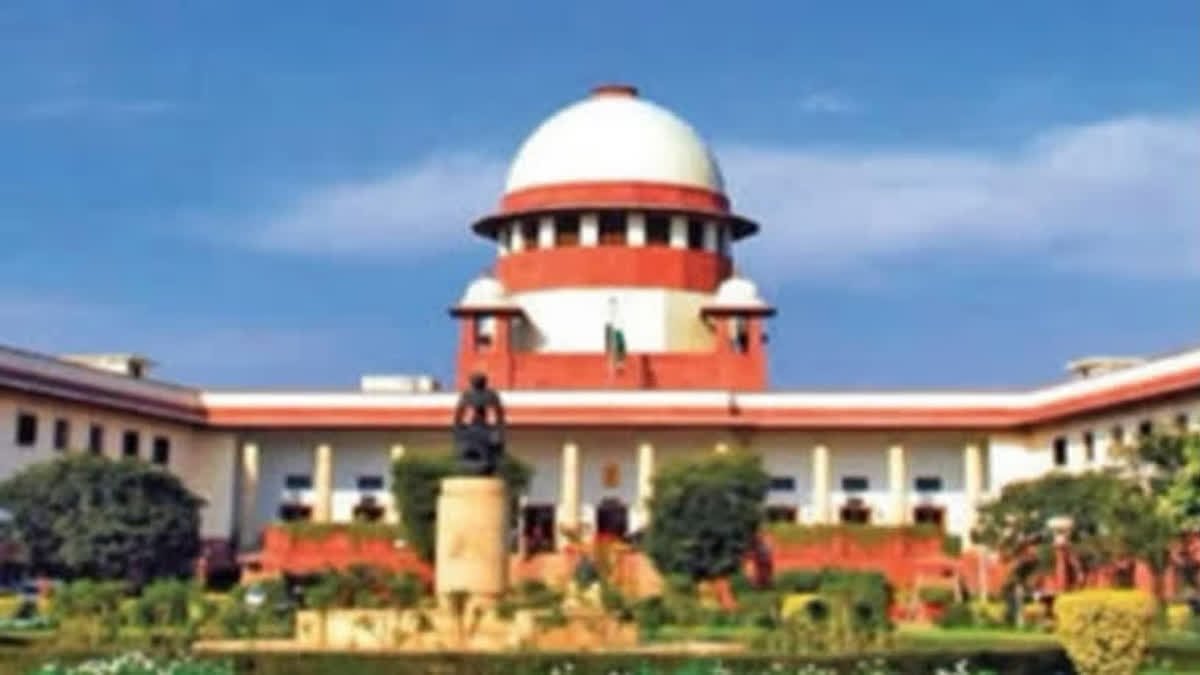New Delhi: The Supreme Court has said that trial in a corruption case can neither be stayed nor scuttled in the middle on the ground of absence or invalid sanction. A bench comprising justices Aniruddha Bose and Bela M Trivedi said an interlocutory application seeking discharge in the midst of a trial is not maintainable.
“Once the cognizance was taken by the Special Judge and the charge was framed against the accused, the trial could neither have been stayed nor scuttled in the midst of it in view of Section 19(3) of the said Act”, said the bench. The bench said, “In the instant case, though the issue of the validity of sanction was raised at the earlier point of time, the same was not pressed for. The only stage open to the respondent-accused in that situation was to raise the said issue at the final arguments in the trial in accordance with law”.
The apex court allowed an appeal filed by the Karnataka Lokayukta challenging the High Court delivered on August 16, 2018, discharging the accused from the offences charged under Section 13(1) (e) read with Section 13(2) of the Prevention of Corruption Act. The top court said the findings recorded by the special judge could not have been and should not have been reversed or altered by the High Court in the petition filed by the respondent challenging the said order of the special judge, in view of the specific bar contained in sub-section (3) of Section 19. “And that, too, without recording any opinion as to how a failure of justice had in fact been occasioned to the respondent-accused as contemplated in the said sub-section (3)”, said the bench.
Also read: SC grants bail to pregnant woman accused of abetment of suicide of her husband
The top court said neither the respondent had pleaded nor the High Court opined whether any failure of justice had occasioned the respondent, on account of error if any, occurred in granting the sanction by the authority. The top court emphasised that it is always desirable to raise the issue of the validity of sanction at the earliest point in time.
The High Court had found that sanction for prosecution for A Subbegowda, then working as an executive engineer in the Karnataka Urban Water Supply and Drainage Board, was illegal and without jurisdiction. It was alleged that Subbegowda amassed wealth disproportionate to known sources of income. The top court said: “The said sub-section (3) (Act) clearly forbids the court in appeal, confirmation or revision, the interference with the order passed by the Special Judge on the ground that the sanction was bad, save and except in cases where the appellate or revisional court finds that the failure of justice had occurred by such invalidity”.
The top court noted that it cannot be gainsaid that in case the sanction is found to be invalid, the trial court can discharge the accused and relegate the parties to a stage where the competent authority may grant a fresh sanction for the prosecution in accordance with the law. The bench stressed that the High Court could not have interfered with the special court's findings that the sanction was proper and valid without recording any opinion that a failure of justice had in fact been occasioned to the accused.



